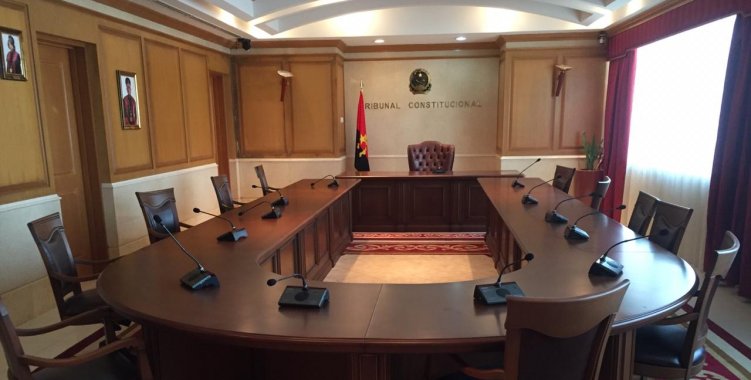In a ruling by the TC plenary on the Preventive Monitoring of the Constitutional Revision Law, to which Lusa had access this Thursday, the judges of that court declare that the LRC, approved by the National Assembly, "conforms to the principles and limits set out in the Constitution of the Republic of Angola (CRA)".
"With the exception of the articles that deal with the separation and interdependence of the organs of sovereignty for disrespecting the material limits fixed in the CRA, referring to the principles of the independence of the courts and the separation of powers," the ruling 688/2021 reads.
The LRC, an initiative of the President, João Lourenço, was approved by the National Assembly on June 22 and subsequently sent to the TC for preventive monitoring.
The draft revision of the Constitution of the Republic of Angola (CRA), approved by the speciality commissions and in its entirety by the plenary of the National Assembly, took the form of the LRC and amended 44 articles, added seven new articles and also revoked some articles.
For the plenary of the TC, in the process of constitutional revision, the National Assembly "respected the procedures established in the CRA, and there was no disrespect for formal limits (initiative, approval quorum and procedures) or circumstantial limits".
The LRC proposes that the superior courts of the Republic of Angola are the Supreme Court, the Constitutional Court and the Supreme Military Court, "altering the original arrangement of the superior courts, but maintaining their respective functions."
The new order of precedence "is merely protocol and does not affect the competence of each of the superior courts. It is the understanding of the Constitutional Court that the rule respects the material limits established by the CRA," the plenary said.
The ruling validated the norms about the jubilation at 70 of judges of any jurisdiction, the independence of the National Bank of Angola (BNA), the voting of Angolan citizens abroad, the limits of private property and the withdrawal of the gradualism in the CRA in force.
The unofficial, mandatory and permanent electoral register, the updating of the electoral register abroad, the date of the general elections, which should be held "preferably during the second fortnight of August", the extension to 15 members of the Council of the Republic also merited the agreement of the TC.
The model of parliamentary oversight and interpellations to Ministers of State, Ministers and Provincial Governors, "upon prior request to the President of the Republic, and this request should include the content of the diligence", were also considered to be within constitutional limits.
The norm and respective articles of the LRC that determines that the "Constitutional Court annually sends the report of its activity to the President of the Republic and the National Assembly for their knowledge" was the only point rejected by the plenary of the TC for "disrespecting the material limits of the CRA.
"The principle of separation of powers determines the specificity of functions of the organs of sovereignty, without submission of one to the other. The submission of this report, even if only for knowledge purposes, contravenes the aforementioned principle," the judges note.
The Constitutional Court, the Supreme Court and the Supreme Military Court "may, instead, publish their reports in the Official Gazette, without prejudice to submitting budget reports to the Court of Auditors," they point out.
Thus, adds the ruling, the plenary of ten judges of the TC, with two dissenting votes, also agreed to return the LRC now under consideration to the President for him to return to parliament.







